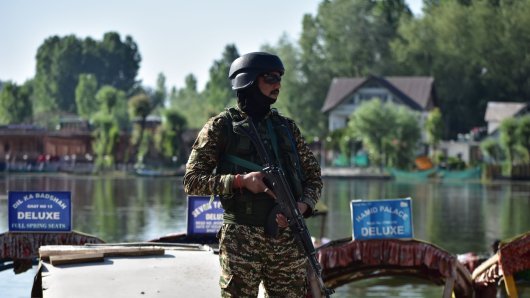In an article published by the French paper Le Monde and the US liberal news portal The Huffington Post, French philosopher and writer Bernard-Henry Levy has called on the Croatian authorities, on behalf of a dozen prominent European intellectuals, not to allow the imprisonment of the university professor and writer Predrag Matvejevic for "an offense of opinion".
"Predrag Matvejevic must not go to prison", Levy says in the article's headline, stressing that "one of Europe's great intellectuals is presently threatened with imprisonment in his own country, Croatia, for an offense of opinion."
"Can this be Europe? Has European genius fallen so low that we can simply accept this imminent outrage, without any reaction whatsoever?," the author wonders.
On July 28, at the age of 78, Matvejevic will perhaps spend his first night in prison, a singular destiny for a university professor who once taught at the Sorbonne, whose only crime is to have openly expressed clear-cut opinions, says Levy.
The French philosopher gives a chronology of the case in which Matvejevic, after being sued by Bosnian writer Mile Pesorda, was sentenced to five months in prison, suspended for two years, by the Zagreb Municipal Court on 2 November 2005.
The case and the subsequent verdict were prompted by an article headlined "Our Taliban" which Matvejevic wrote for the Jutarnji List daily of 10 November 2001 after visiting Sarajevo. In the article, he called for a tribunal stricter than the Hague tribunal to try Mile Pesorda, Ivan Aralica, Momo Kapor and some other writers, accusing Pesorda of being responsible for the crimes in Bosnia and Herzegovina and calling him a Quisling writer, fascist collaborator and Taliban from Sarajevo.
The court verdict for Matvejevic was condemned by the Croatian Journalists Association and the Reporters Without Borders association, as well as by the then Croatian Prime Minister Ivo Sanader.
Matvejevic refused to appeal the verdict, saying for the media that he recognised neither the court nor its verdict.
In May 2010, the Croatian Supreme Court turned down a motion by Chief State Prosecutor Mladen Bajic to quash the verdict, upholding it.
The international press, in particular French, English and Italian, took up the cause of this professor, specialist of comparative literature and a man of courageous political convictions, says Levy.
He underlines that in 1991 Matvejevic was subjected in Croatia to insults and defamation of all kinds and that shots were fired into his pigeonhole at the University of Zagreb, where he was director of studies of French literature. It was the beginning of an exile that led him to Paris, Rome, and then Trieste, says Levy.
"During all the wars that have bathed ex-Yugoslavia in blood and since then, he has unfailingly fought against nationalism, against extremism, against the hard-liners on all sides and of all origins, expressing his love for a fraternal and pacific Mediterranean in his works, the most famous of which is his Mediterranean: A Cultural Landscape, translated into more than twenty languages."
As for the fact that Croatia, a country to join the European Union soon, is about to imprison one of its leading intellectuals, Levy describes it as "the Croatian left-over of Yugoslavia's authoritarian past", wondering if it can be soluble in Europe.
"In the meantime, as we search for an answer to these questions, on July 28, at the age of 78, Matvejevic will sleep in prison," Levy concludes in his article.
The article was also signed by the Italian writer and philosopher Umberto Eco, the French philosopher Michael Foessel, the Italian writer Claudio Magris, the British-Indian writer Salman Rushdie, the German philosopher Peter Sloterdijk and others.
































